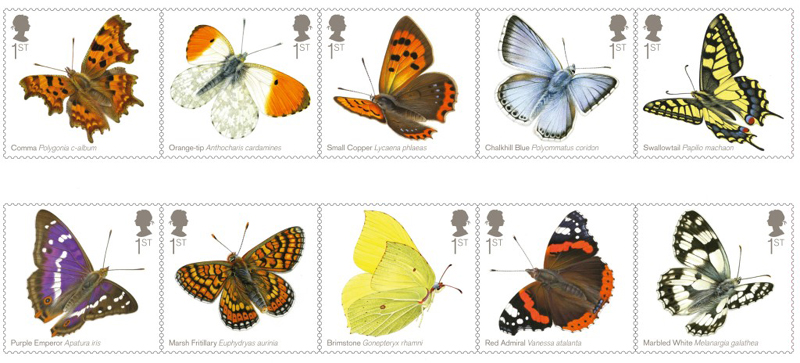Butterfly numbers are suffering a "shock collapse", a study shows today as conservationists raise concern farm pesticides are causing the worst population fall in six years. Despite a warm summer that would normally help them thrive, the majority of species studied in the annual Big Butterfly Count saw populations fall. Some saw their worst numbers since the citizen science project began in 2010. The results were even lower than the cold washout summer of 2012 which proved a disaster for butterflies, despite 2016 being warmer than average and relatively dry, wildlife charity Butterfly Conservation said. Experts at the charity admitted the reason for butterflies struggling this year was "a bit of a mystery", but the insects could be affected by the mild winter or cold spring, or the impacts of modern farming may be hitting common species now.
Gatekeeper, comma and small copper butterflies all experienced their worst summers seen in the count, in which members of the public count common butterfly species to help the experts chart their fortunes. Numbers of comma butterflies fell 46 per cent compared to last year, while gatekeeper populations were down 40 per cent and small coppers dropped 30 per cent compared to 2015.
The small tortoiseshell saw a 47 per cent drop in numbers counted, recording its second worst set of numbers. Peacock butterflies also slumped to their second worst year on record, with a drop of 42 per cent on 2015 numbers. The average number of the striking peacock butterfly seen has dropped from an average of 3.6 individuals per count in 2013 to just 0.5 per count this summer.
And people taking part in the count saw the lowest number of butterflies each since the scheme began, with an average of just 12 butterflies spotted per survey. Richard Fox, Butterfly Conservation's head of recording, said: "The drop in butterfly numbers this summer has been a shock and is a bit of a mystery. "When we have cold, wet summers, as in 2012, we expect butterfly populations to plummet, but that wasn't the case this year. "The summer months were warmer than usual, yet most Big Butterfly Count participants saw fewer butterflies. "Perhaps the very mild winter had a negative effect, or the cold spring, or perhaps the impacts of intensive farming and pesticides are really hitting these common species now."
Source: Telegraph, 10 October 2016
http://www.telegraph.co.uk/news/2016/10/10/final-warning-decline-in-but…

- Login om te reageren
